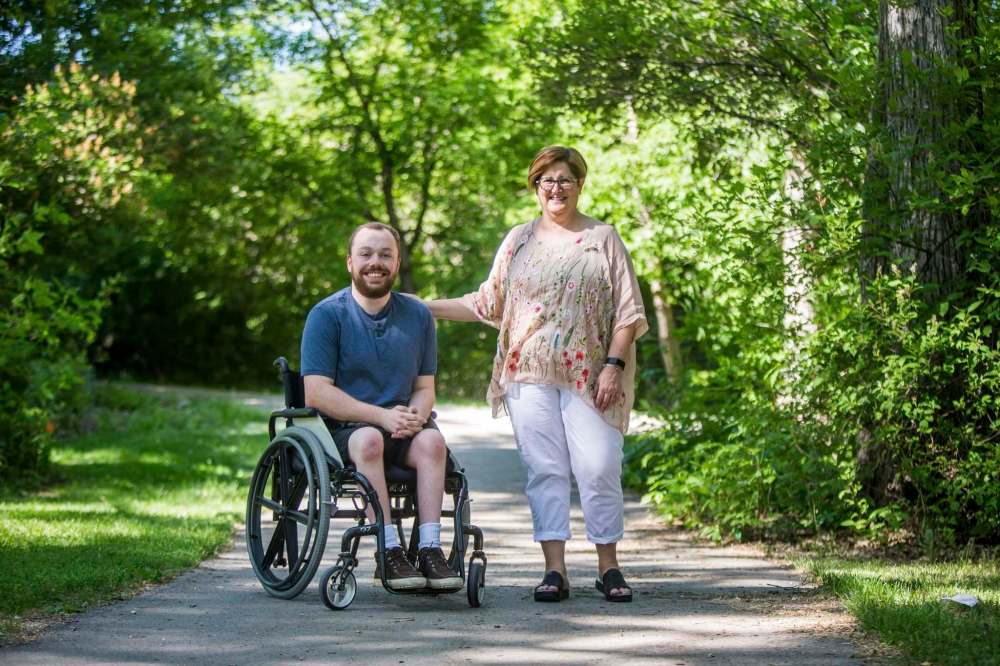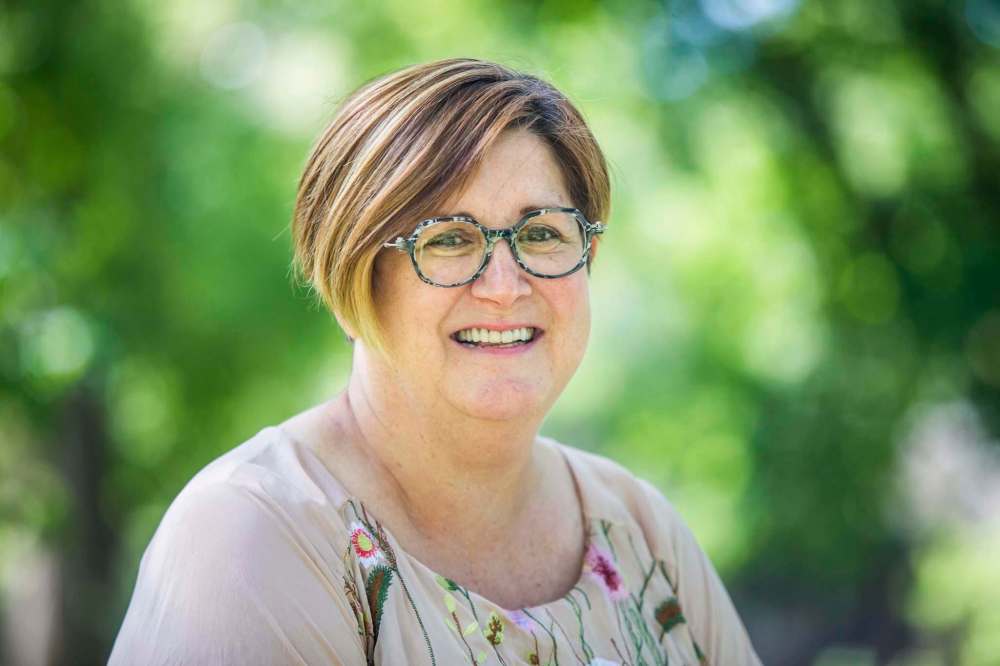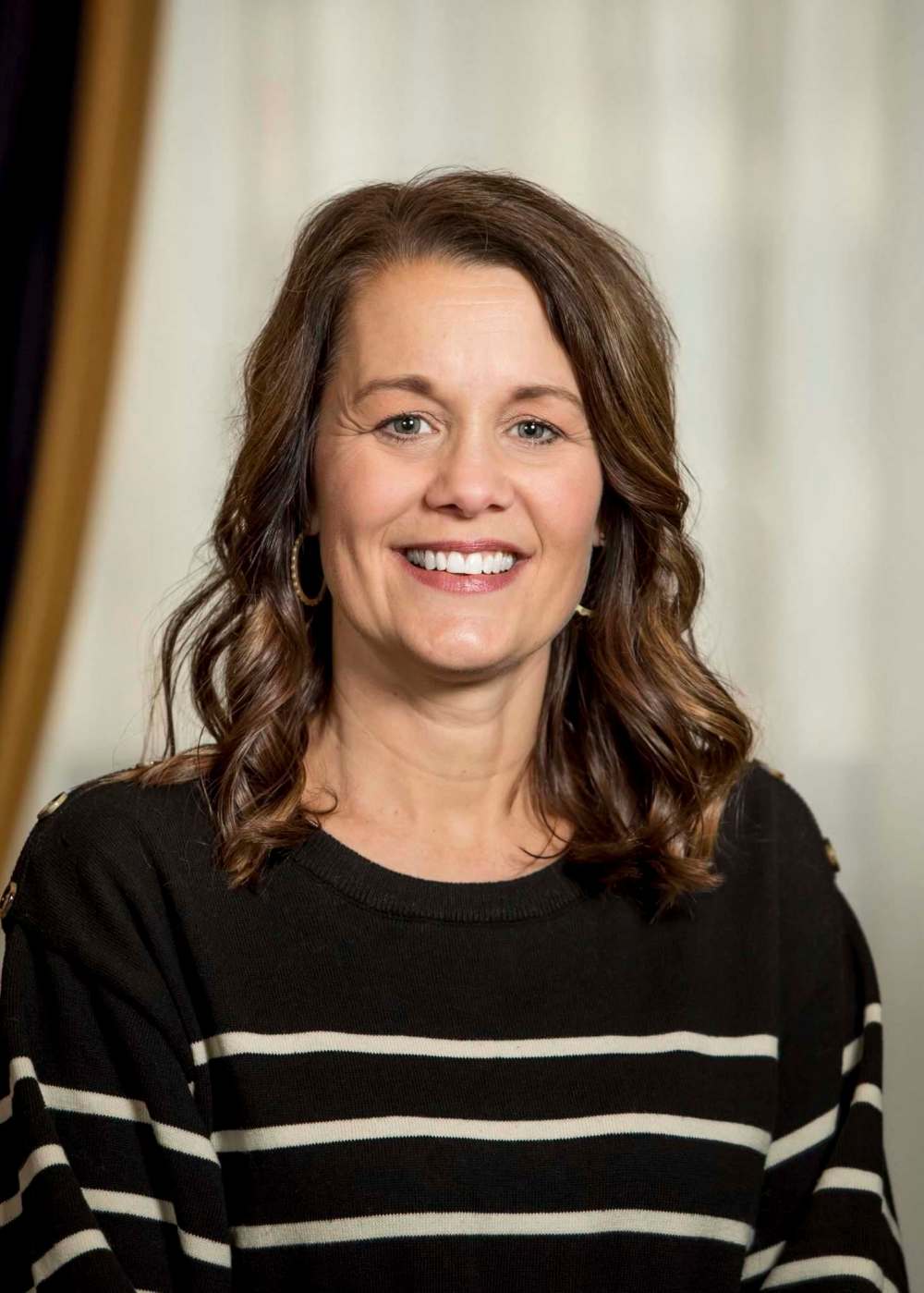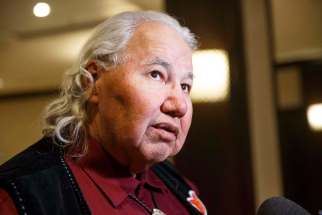Miracle worker Retiring Children's Rehabilitation Foundation's top exec reflects on a 'gratifying, amazing' 21-year career
Read this article for free:
or
Already have an account? Log in here »
To continue reading, please subscribe:
Monthly Digital Subscription
$0 for the first 4 weeks*
- Enjoy unlimited reading on winnipegfreepress.com
- Read the E-Edition, our digital replica newspaper
- Access News Break, our award-winning app
- Play interactive puzzles
*No charge for 4 weeks then price increases to the regular rate of $19.00 plus GST every four weeks. Offer available to new and qualified returning subscribers only. Cancel any time.
Monthly Digital Subscription
$4.75/week*
- Enjoy unlimited reading on winnipegfreepress.com
- Read the E-Edition, our digital replica newspaper
- Access News Break, our award-winning app
- Play interactive puzzles
*Billed as $19 plus GST every four weeks. Cancel any time.
To continue reading, please subscribe:
Add Free Press access to your Brandon Sun subscription for only an additional
$1 for the first 4 weeks*
*Your next subscription payment will increase by $1.00 and you will be charged $16.99 plus GST for four weeks. After four weeks, your payment will increase to $23.99 plus GST every four weeks.
Read unlimited articles for free today:
or
Already have an account? Log in here »
Hey there, time traveller!
This article was published 23/06/2021 (1632 days ago), so information in it may no longer be current.
Fifteen years ago this month, Andrew Fenwick’s young life was turned upside down.
At the age of 10, the young Winnipeg sports fan and lover of classic car’s appendix suddenly burst, flooding his body with sepsis.
Andrew was rushed to hospital, but lapsed into a coma. When he awoke, instantly he knew nothing would be the same.
He recalls that terrifying moment in a powerful video he made for the Children’s Rehabilitation Foundation during his Grade 10 year at Churchill High School.
“When I woke up from my coma, all I could move were my eyes,” he recalled in the video. “I just felt scared, because I used to be in running club and did all this physical activity, and then I woke up to find myself completely paralyzed and only being able to move my eyes.”

He was fiercely determined to overcome these new challenges and was motivated by a powerful dream — a desire to walk across the stage under his own steam to accept his high school diploma.
Fortunately, he didn’t have to fight alone. Enter the Children’s Rehabilitation Foundation, a non-profit organization that raises money for specialized equipment and programs for disabled children and youths up to the age of 21.
The foundation provided Andrew with an adaptive bicycle to help rebuild his muscles and restore his self-confidence. At the Rehabilitation Centre for Children — of which the foundation is the fundraising arm — he was fitted for leg braces and underwent countless hours of gruelling therapy.
In 2013, the year he became youth ambassador for the foundation, seven years of hard work and support paid off as Andrew turned his dream into reality — he walked across the stage and accepted his high school diploma to the wild cheers of his Churchill classmates.
Now 25, this once-paralyzed young man is a summer student at local law firm Myers LLP, and is preparing to enter his third year of law school at the University of Manitoba. He plans to be a labour lawyer.
What you don’t know about Christine Schollenberg
Age: 59 (She turns 60 in December)
Husband: Married for 26 years to local realtor Wes Schollenberg
Children: Stepmom to three young men — Mark, 39; Wade, 34; Dustin, 33 — and adoptive mom to 29-year-old twins, Anne-Marie and Joseph
Favourite food: “Pizza. My husband makes the best homemade pizza. Our friends rave about it. We have a pizza oven outside. He’ll make any kind you want. Ham and pineapple’s good.”
Favourite film: “I like any movie that is done by Robin Williams. He’s my favourite, like Patch Adams. It broke my heart when he died. I like all of his movies, but Patch Adams was a good movie. Beetlejuice is second.”
Favourite music: “I love every kind of music. I have music on in the house all the time. I love Christian rock all the way to 70s, 50s, classical, anything. Right now with my grandson it’s by Kid Pops, You Make Me Want to Move, or something.”
Hobbies: “I love gardening. I’m in my yard all the time. I love reading. Trying to get back into exercising. Trying to cook a new kind of food once a week, my husband is the guinea pig. Love baking. Used to love to travel. Tasting different kinds of wines. I love wines, white wines, chardonnay. Love having friends over.”
Sports: “I used to play baseball. I loved playing baseball. Played all through my teens. After we had kids, I played rec. Between breaking ankles and losing teeth, that was it, I was done. It was time to give it up.”
Q: How do you describe yourself?
A: “I’m caring. I’m very empathetic. I think I have a big heart. I’m a fundraiser at heart but I also give to a lot of organizations. I can’t say no. I like to think I care about my friends and my family. I love animals … my husband told me I need to take a course in time management because I try to fit too much in a day. I always think the day is made of 28 hours, not 24.”
Retirement dream: Reading to babies in the neonatal intensive-care unit at HSC. “There’s lots of little babies that have no one that visits them. That’s what I want to do. If I can, I might go read at a daycare. I love reading to kids. I’ll babysit my grandson. I have one grandson, Lucas.”
“It’s huge. It’s hard to put into words,” he said last week when asked about the difference the rehabilitation foundation has made in his life. “The positive energy from the foundation, and especially Chris (executive director Christine Schollenberg), it really had an impact, a huge impact. I spent several hours a week at the rehab centre.
“My mom brought me to the rehab centre and I started on the parallel bars. I went to the rehab after school Mondays and Thursdays for hours at a time. Over the years I progressed. I really do not think I’d be where I am today without the rehab. Not just the braces and physio but the attitude of the people. There’s no quit in any of them. They’re all just amazing individuals.”
With a note of hard-earned pride in his voice, he said: “I walked across the stage at my high school graduation because of the work they put in — the positive attitude and supports.”
Listening to Andrew’s words emanating from the speaker of her cellphone in a boardroom at the foundation’s offices on Notre Dame Avenue last week, Schollenberg’s emotions quickly bubble to the surface.
Of the hundreds and hundreds of miracles she’s witnessed in her 21 years at the foundation — the last 11 as its executive director — Andrew’s inspiring story is the one she says she will never forget.
“He really touched my heart,” Schollenberg, 59, who is retiring at the end of this month, tells a visitor. “I met him when he was just a little kid in this wheelchair and he could barely raise his head to look at me, to talk to me. He gave me this little smile. To see him where he is today, it’s through his hard work, his pushing. It’s gratifying, it’s amazing. You always want to think you are able to do that, but when you actually see it …”
Throughout an hour-long interview, Schollenberg becomes misty-eyed multiple times as she shares emotional memories about the children and families the foundation has helped, and her own experiences raising a child with special needs.
She struggles to find the words when asked why Andrew’s story of courage and determination stands out. “I think something about him … now you’re going to make me cry again … I don’t know,” she says, fighting back tears. “I think it could have been my child. It could have been any child. I think what I love about him is his outlook on life, his tenaciousness, his wanting to be better at everything and have no obstacles in front of him. He’s got great parents, but he’s an amazing young man.
“This one (Andrew) was really, really, really special. I don’t know. I think it’s just the first time I saw this little boy struggling to hold his head up to where he is today. I mean, all our kids, I can honestly tell you every child that has been our ambassador through the years. They come in, they’re very quiet, almost afraid of their own shadow, and at the end they are amazing.
In support of Specialized Services for Children and Youth, which includes the Children’s Rehabilitation Centre, the foundation raises cash for specialized equipment — everything from adaptive bicycles and lightweight wheelchairs to iPads to help kids communicate with their families. In a typical year, it will fund between 350 and 450 pieces of equipment, which can range in price from $1,000 to $8,000.
Not to mention inclusive leisure programs such as art therapy, cooking clubs, music therapy, a Saturday Night for Teens club, and summer camps for children and youths with physical and developmental challenges.
“I went to a bike presentation 21 years ago when I first started here, and I still have the same feeling today. To watch a child for the first time get on a specialized bike and they just pedal, everybody’s happy, there are tears of joy, you see the biggest smile on a child’s face. There’s no better thing to see. I love doing bike presentations, but, boy, they are hard on your emotions. I should have brought Kleenex,” she laughs as a few more tears begin to flow.

Schollenberg didn’t grow up dreaming of being a professional fundraiser — she wanted to be a social worker — but the career seemed to be in the cards from Day 1.
In Grade 4 at Dalhousie School, she raised money to help Assiniboine Park Zoo bring in a snow leopard. After graduating from Fort Richmond Collegiate, she got a certificate in child care at Red River College, then landed a job in student records at the U of M.
Then she took a course in fundraising at Red River and got hired in 1999 to help drum up cash for the Royal Aviation Museum of Western Canada. Schollenberg has always had a special knack for asking people to cough up cash for worthy causes.
“I always volunteered at things. I was always fundraising for something. I had no problem asking people, if I felt passionate about something, to help support it and give money for a cause,” she recalls with a laugh.
In 2001, she started at the rehabilitation foundation as a development officer, the non-profit’s first full-time fundraiser. Nine years later, she stepped into the top job as executive director.
“Our team here has been absolutely amazing. I can’t say enough how generous this city is. The amount of support we’ve received over this past year is just amazing.”– Christine Schollenberg
Unlike many charities, she explains, the foundation has found a silver lining amid a global COVID-19 pandemic that has made in-person fundraising events a thing of the past and virtual campaigns the hot new trend.
“You know what, honestly, the first year you’re trying to figure everything out, you’re trying to reinvent, pivot, everything’s virtual,” she says. “We’ve actually blown things out of the water. Our team here has been absolutely amazing. I can’t say enough how generous this city is. The amount of support we’ve received over this past year is just amazing.
“The foundation did a bike campaign, 25 bikes we had to fund … and they raised almost $100,000. That’s crazy. That’s the generosity of this city.”
Consider the annual Smile Cookie campaign, which, in the first year of the pandemic, raised a record $175,297. “We were at the mercy of the generosity of Winnipeg and everybody just bought smile cookies,” she says. “I think it was a really nice way to thank people. Everyone was wanting to thank the first responders, wanting to thank the police, wanting to thank the fire department, wanting to thank the school, wanting to thank the day care.”
Donations and grants are the foundation’s only means to survival as it receives no government or United Way funding. “We work hard for the money,” Schollenberg quips, singing a snippet of the 1983 Donna Summer disco hit.
Meet the new boss
Jane Kidd-Hantscher knows she has a big job in front of her.
Kidd-Hantscher, 51, is the incoming executive director of the Children’s Rehabilitation Foundation, taking the reins from Christine Schollenberg, who retires at month’s end.
“First of all, I’m thrilled and honoured for the opportunity,” Kidd-Hantscher said last week in a phone call from her cottage in northwestern Ontario. “I know I have huge shoes to fill.
Jane Kidd-Hantscher knows she has a big job in front of her.
Kidd-Hantscher, 51, is the incoming executive director of the Children’s Rehabilitation Foundation, taking the reins from Christine Schollenberg, who retires at month’s end.
“First of all, I’m thrilled and honoured for the opportunity,” Kidd-Hantscher said last week in a phone call from her cottage in northwestern Ontario. “I know I have huge shoes to fill.
“I know people who know Christine and they speak incredibly highly of her. It will be a huge learning curve, but I’m very excited.”
A lifelong Winnipegger, the new foundation boss spent the past six years as director of marketing and communications for CancerCare Manitoba Foundation. Prior to that, she spent 23 years in a variety of posts at Centra Gas and Manitoba Hydro.
A mother of three, her first day on the job was June 22, allowing her to spend a couple of weeks learning the ropes with Schollenberg. “The first goal I have is to learn, learn, learn,” she said. “Learning will set up understanding what we could do more of, particularly on new initiatives.”
She prides herself on being a storyteller, a skill she honed while earning a communications degree with a major in journalism at the University of North Dakota from 1989-92. She also has a master’s in public administration from the University of Manitoba and the University of Winnipeg.
“You need to tell the powerful stories of the families that use the foundation’s services,” Kidd-Hantscher, who describes herself as a “massive extrovert,” explained. “You bring people in and explain why it’s so important to help these children. You do that by sharing these stories.
“We want to help as many children and their families as possible. We will share these stories to gain the support of the community.”
She said she has a unique insight into an organization devoted to providing specialized equipment and programs to disabled children and youths, because one of her children dealt with a serious health issue.
“I will bring my talent and my passion to help people because I know what it means to be on the other side of the equation,” she confided. “For me, this job is the perfect fit — it’s about children and health, which are my passions.
“I just hope I can carry on the incredible legacy Christine (Schollenberg) has built with the team here and help as many families as we possibly can. To do that, of course, you need to raise money.”
Just weeks away from retirement, Schollenberg concedes helping children and their families has been far more than a job for her. It was also intensely personal, a family affair.
When she married local realtor Wes Schollenberg in 1995 — it was a second marriage for both — she became a stepmom (Her nickname is “Steppie”) to his three now-grown boys — Mark, 39; Wade 34; and Dustin, 33. Three years later, they adopted five-year-old twins, Anne-Marie and Joseph, who both turn 29 at month’s end.
“My husband has a big heart and he told me I had to be called a mom,” she recalls. “He thought it was important, and we both agreed and put our name in for adoption, and we got a call. They said we have twins for you. I remember that call like it was yesterday. I hung up the phone, and cried. I had to call the social worker back because I realized I hung up on her because I was crying so hard.”
The twins were tiny and malnourished, but Joe also had special needs. “He falls under the autism spectrum. He lives in a group home now. Joe is thriving in Joe’s own way … he has a genetic disorder, a piece of his 21st chromosome is missing. He has attention deficit. He’s just Joe. He beats to his own drum. But he’s a very loving and caring person.”
She’s proud that raising a child with special needs has given her unique insight that makes it easier to help other families with disabled children. “I eat, sleep and breathe it. I very much understand what parents are going through. I feel because I have a son with a disability I have a sixth sense to help parents navigate the system,” she confides. “I understand what they are going through and when things aren’t going right and they’re having trouble with the system and need equipment.”
Her friend of almost 40 years, Kerri Johnson, marvels at Schollenberg’s ability to balance her professional and family life. “Her role at the Children’s Rehabilitation Foundation has never been just a job,” Johnson says. “Take a really busy mom and add a really busy job and you’re talking about a super-woman, at least in my eyes.”
It wasn’t easy to make the decision to walk away from a job she loves intensely, but everything added up — the pandemic, the death of her mother, becoming a first-time grandmother, and reaching the “magic number” where your age and years of service equal retirement.
“I’m a nana now,” she says, smiling. “I babysit. I think it was just time. I had a plan and it fell into place. I’m going to miss this place. I’m going to miss the families because they have so much to give you and teach you. I’ll miss my staff.”
And then she takes a sip of coffee and falls silent. “Are you crying again?” her visitor asks without looking up from his notes.
Without skipping a beat, this compassionate champion for disabled children laughs and offers a one-word reply: “Yup!”
doug.speirs@freepress.mb.ca


Doug has held almost every job at the newspaper — reporter, city editor, night editor, tour guide, hand model — and his colleagues are confident he’ll eventually find something he is good at.
Our newsroom depends on a growing audience of readers to power our journalism. If you are not a paid reader, please consider becoming a subscriber.
Our newsroom depends on its audience of readers to power our journalism. Thank you for your support.







